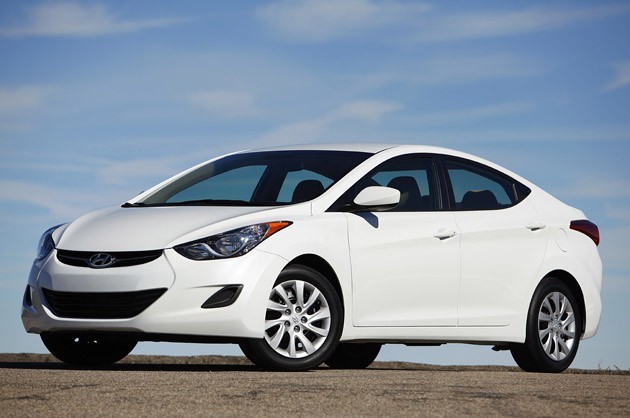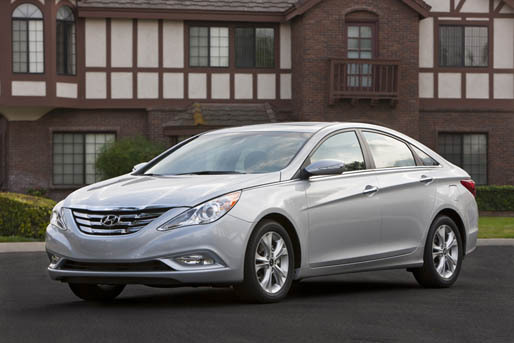LOS ANGELES – Hyundai Motor Co. is solidifying its image among auto shoppers.
The South Korean automaker toppled Honda Motor Co. and Toyota Motor Corp. to take the top spot in brand loyalty, according to Kelley Blue Book’s measure of brand loyalty during the second quarter of this year.
Although Hyundai has held that position for a month once before, it was the first time since the auto information company began tracking the data that Hyundai has held the No. 1 spot for an entire quarter.
Hyundai, once known for producing among the least reliable vehicles sold in America, has retooled its lineup and is picking up market share, mostly because of its hot-selling sedans, the Sonata and the Elantra.
Through the first six months of 2011, Hyundai’s U.S. sales have risen 26 percent compared with the same period last year, to 327,797 vehicles, according to Autodata Corp. Its growth is more than double the rate of the entire industry in the U.S. this year.
Hyundai held a 5.1 percent market share during the first half of this year, up from 4.6 percent a year earlier.
During the second quarter, Hyundai’s brand loyalty was at 52.3 percent. Honda’s was 49.7 percent and Toyota’s was 47.7 percent. Rounding out the top five were Ford with 45.4 percent and Subaru at 44.8 percent.
The brands with the least customer loyalty in the quarter were Saab at 14.5 percent, followed by Suzuki, 16.9 percent; Jaguar, 18.1 percent; Chrysler, 18.8 percent; and Mitsubishi at 19.6 percent.
Kelley Blue Book, known for its used car pricing guide, defined loyalty by looking for owners of a brand who are currently shopping the same brand for their next vehicle. This includes data from consumers who view a trade-in page or private party page in addition to a new-car page on Kelley Blue Book’s kbb.com auto information website.
“Hyundai’s product renaissance is benefiting the company not just by attracting an all-new customer base, but by helping them to retain current loyal Hyundai owners as well,” said Arthur Henry, an analyst at Kelley Blue Book.
Other measures also have demonstrated improvements in Hyundai’s brand.
In 2001, only 8 percent of Hyundai buyers came from a previous Hyundai vehicle, but by 2005 that was up to 16 percent, and the figure now stands at 18 percent, said Alexander Edwards, president of Strategic Vision Inc., which does market research for the auto industry.
“Of the people buying a brand, at least 20 percent should be repeat buyers. The closer you get to 100 percent, the more you become like an Oldsmobile, and you are going to die off,” Edwards said.
Hyundai is running below the 20 percent target, but that isn’t an issue because it is attracting so many customers from other automakers, and that’s skewing its percentages.
“You have to look at both source of sales and loyalty measures to get a real of picture the hearts and minds of a brand’s customers,” Edwards said.
Send questions/comments to the editors.




Comments are no longer available on this story